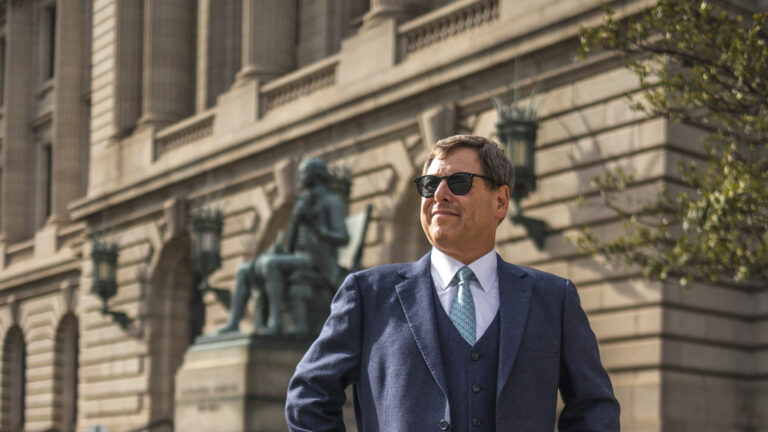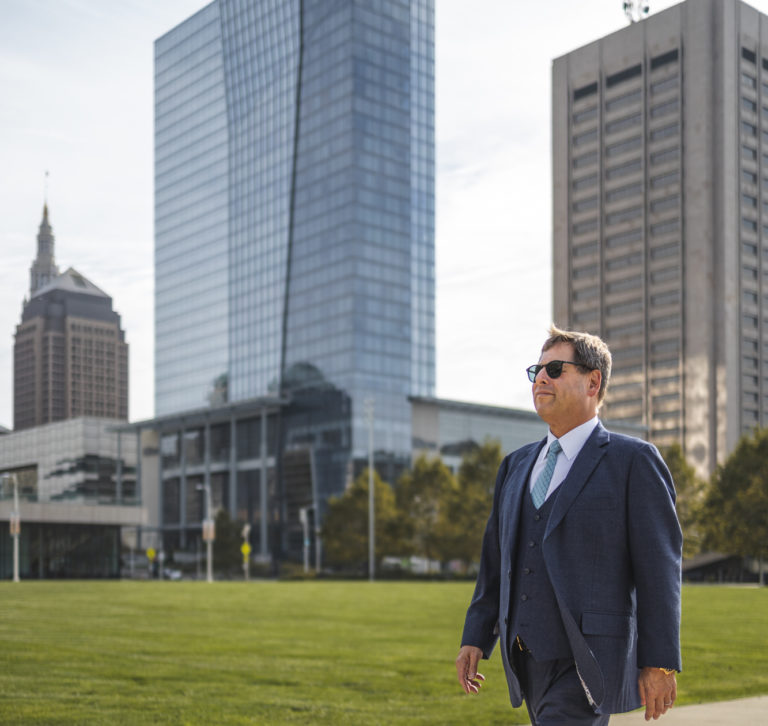It’s a cruel irony that lawyers, perhaps the most verbose citizens in the U.S., have more restrictions placed on their speech than any other citizen. State disciplinary rules and codes of professional responsibility govern what lawyers can and cannot say, how they may say it, and how they can advertise their services. And until this week, Ohio attorneys had no clear federal court decision affirming their First Amendment rights.
All of that changed when the Sixth District Court of Appeals ruled in favor of John Berry, a Kentucky lawyer who had criticized the state’s Legislative Ethics Commission (“LEC”) investigation into alleged fundraising violations by a state senator. Berry attended an LEC meeting that went into an executive session, leaving Berry and reporters in the dark. In a letter he distributed to members of the LEC as well as the public, Berry wrote that the secretive move could cause the public to think that the “deck was stacked” in the senator’s favor. The LEC reported Berry’s remarks to the Kentucky Bar Association (“KBA”), which informed Berry that “by publicly implying that the [LEC] did not conduct its review appropriately,” he violated Kentucky Rule of Professional Conduct 8.2(a), which states:
A lawyer shall not make a statement that the lawyer knows to be false or with reckless disregard as to its truth or falsity concerning the qualifications or integrity of a judge, adjudicatory officer or public legal officer, or of a candidate for election or appointment to judicial or legal office.[1]
The KBA further advised Berry that he would be wise to refrain from making similar critiques in the future. The LBA never officially sanctioned Berry, but Berry viewed the warning letter as a restriction on his future speech. Berry’s challenge of the KBA’s warning eventually landed before the Sixth Circuit.
The Sixth Circuit held that the “chilling effect” of the KBA’s warning violated Berry’s freedom of speech. In reaching it’s decision, the court rejected KBA’s argument that that Berry’s statement was defamatory simply because it implied that the LEC illegally excluded the public from the executive session. Berry did not explicitly state that the action was illegal. But even if he had said that it was unlawful, the court ruled that his speech still would have been protected, as “contentions that adjudicatory bodies acted illegally are the staple of appellate briefs, and cannot without more constitute ethical violations.”
With this in mind, the court found that Berry’s comments on the LEC’s investigation – which consisted of a mixture of fact and opinion – was protected speech under the First Amendment. Because the KBA did not dispute that the factual assertions made by Berry (the meeting was held behind closed doors) were true, that left only his opinion that the public might conclude that the “deck was stacked” in the senator’s favor. The court found that “[a]n opinion can ‘be the basis for sanctions only if it could reasonably be understood as declaring or implying actual facts capable of being proved true or false.’” Because Berry’s opinion was based on revealed facts, the court ruled that the public was free to accept or reject the opinion.
However, the court did not accept Berry’s argument that he could only be punished by the KBA if his statements were “knowingly false or made with reckless disregard of their falsity,” the same standard applied to private defamation claims. The court said that because the rules of professional conduct were meant to “preserve public confidence in the fairness and impartiality of our system of justice” rather than merely shield public officials from criticism, the ethics rules could restrict speech that defamation suits cannot. Instead of the defamation standard, the court applied a test articulated by the Ninth Circuit in U.S. v. Sandlin, 12 F.3d 861, 867 (9th Cir.1993):
A court should “determine what the reasonable attorney, considered in light of all his professional functions, would do in the same or similar circumstances.” * * * The inquiry focuses on whether the attorney had a reasonable factual basis for making the statements, considering their nature and the context in which they were made.”
After dismissing the somewhat flimsy arguments advanced by the KBA, the court concluded that the ethics rule as applied to Berry violated his First Amendment right:
Even assuming that Berry believed that the Commission had broken the law, he provided the public with the facts upon which his opinion relied. The public was free to investigate the Commission’s procedures and draw its own conclusions. The speaker is not required to provide a comprehensive legal analysis to support his every utterance. For these reasons, Rule 8.2(a) was applied unconstitutionally
It would be difficult to overstate the importance of the court’s ruling in Berry. Attorneys across Ohio are now armed with an appellate federal decision affirming that the First Amendment’s vital protections extend not only to citizens who haven’t graduated from law school, but also to those who have.
It’s worth noting that Ohio Rule of Professional Conduct 8.2(a) is identical to the Kentucky rule. The Ohio Supreme Court – while (perhaps reluctantly) conceding that the First Amendment does indeed protect the speech of attorneys – has nonetheless held that “attorneys may not invoke the federal constitutional right of free speech to immunize themselves from even-handed discipline for proven unethical conduct.” Disciplinary Counsel v. Gardner, 793 N.E.2d 425, 99 Ohio St.3d 416, 2003-Ohio-4048. Federal courts are now at odds with the Ohio Supreme Court when it comes to this issue.
It’s unclear at this point whether the Kentucky Bar Association intends to appeal to the Supreme Court, and if so, whether or not the Court would grant certiorari. In the meantime, lawyers everywhere can celebrate the Berry opinion and the freedoms it extols.
[1] This language is identical to Ohio Rule 8.2(a).




